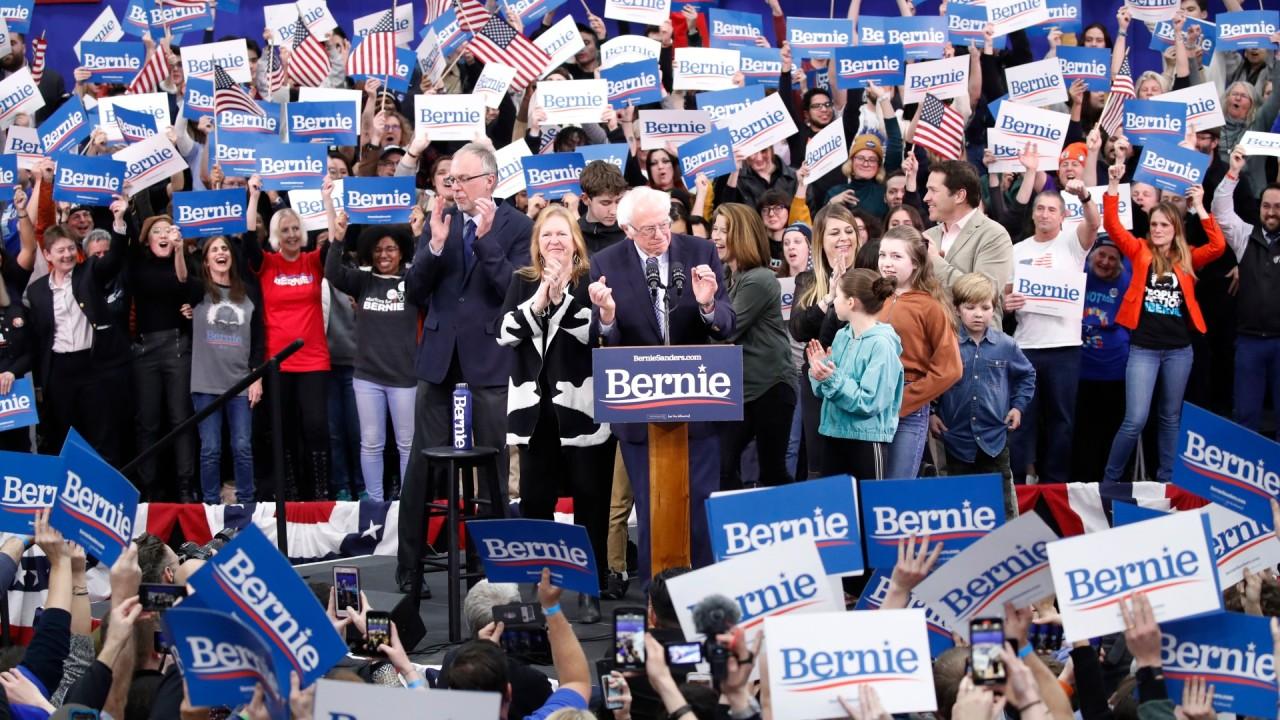Health insurers rally after Sanders misses double-digit victory in New Hampshire
The stocks will likely mirror the inverse of the rise and fall of Sanders, who 'wrote the damn bill' on Medicare-for-all
Bernie Sanders’ narrow victory in the first-in-the-nation New Hampshire primary Tuesday night sent shares of health insurers surging the next day.
The reason? According to an analyst note from JPMorgan Chase, the rally stemmed from Sanders’ failure to win the state by a double-digit margin, like he did in 2016, when he beat Hillary Clinton by more than 20 percentage points.
This year, the Vermont senator and self-avowed democratic socialist defeated Pete Buttigieg, the former mayor of South Bend, Indiana, by just slightly more than 1 percentage point. Both Democratic hopefuls were allotted the same number of delegates.
US HEALTH CARE SYSTEM CAUSING 'MORAL INJURY' AMONG DOCTORS, NURSES
“We believe Sen. Sanders’ failure to win New Hampshire by the expected double-digit margin is a positive surprise for the health care facilities and managed care sector,” the analysts wrote in a Wednesday note.
| Ticker | Security | Last | Change | Change % |
|---|---|---|---|---|
| HUM | HUMANA INC. | 189.47 | -4.43 | -2.28% |
| ANTM | NO DATA AVAILABLE | - | - | - |
| UNH | UNITEDHEALTH GROUP INC. | 275.70 | -0.95 | -0.34% |
| CI | THE CIGNA GROUP | 294.40 | +2.35 | +0.80% |
Human Inc. rose nearly 14 points, or 4.12 percent, and Anthem spiked close to 12 points, or 4.39 percent. Centene Corp. rose 2 points, or 3.23 percent. UnitedHealth rose 10 points, or 3.68 percent, buoying the Dow’s gains. Cigna, meanwhile, spiked 5 points, or 2.52 percent.
The stocks will likely mirror the inverse of the rise and fall of Sanders, who “wrote the damn bill” on Medicare-for-all, the sweeping, multitrillion-dollar proposal to eliminate private insurance and shift the country toward a single-payer system.
TRUMP WOULD RATHER RUN AGAINST BLOOMBERG THAN SANDERS IN 2020
“We believe a Trump re-election, any other Democrat winning the White House or Republicans retaining control of the Senate will prove to be a positive catalyst for the sector,” the analysts wrote.
Over the summer, Sanders acknowledged he would raise taxes on the middle class in order to pay for his single-payer system but insisted most Americans would see their overall costs fall because they would no longer be on the hook for deductibles, copays or premiums. A family currently paying $20,000 for private insurance would see that obligation eliminated, he said, though taxes could increase by $10,000.
“Is that a good deal? I think it’s a pretty good deal,” he said at the time.
Sanders is polling in first place nationally, according to an average published by RealClearPolitics.
CLICK HERE TO READ MORE ON FOX BUSINESS




















